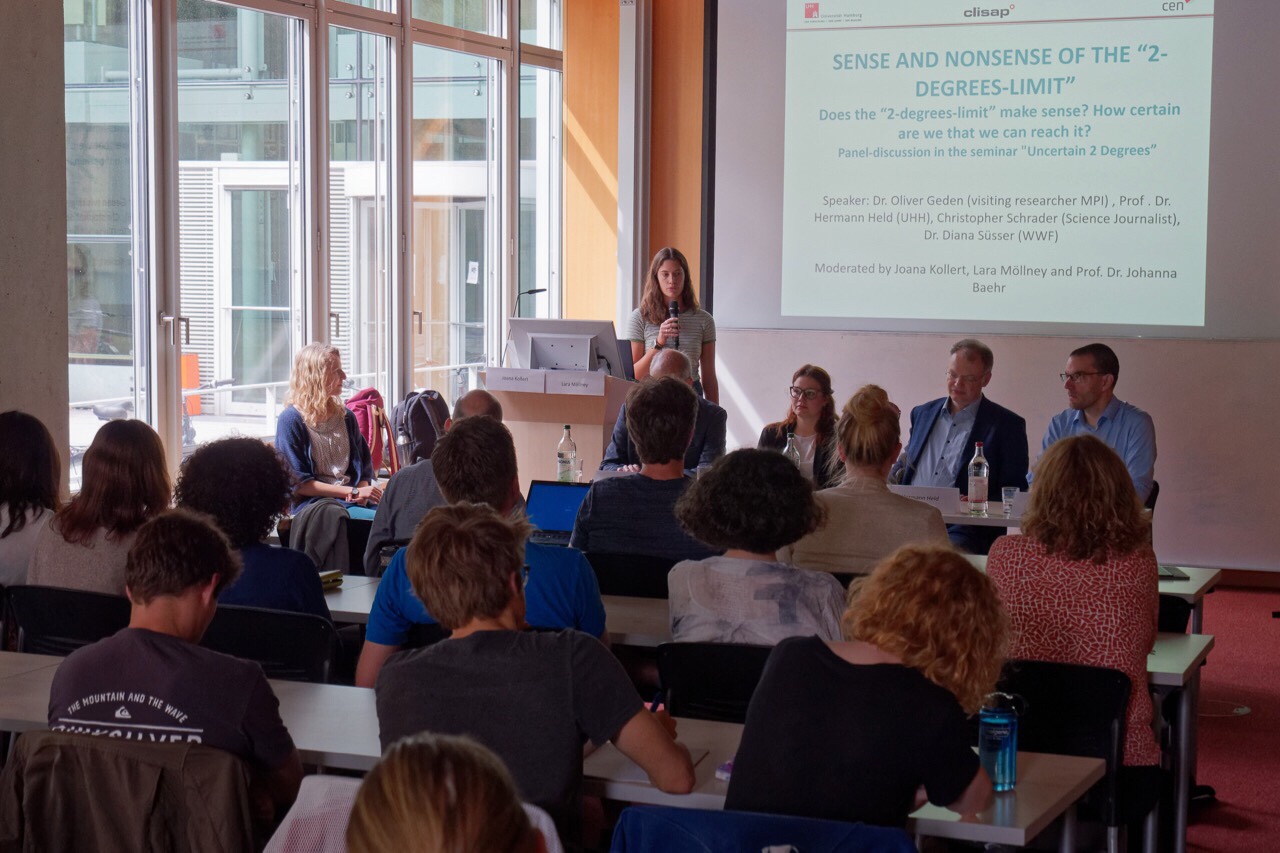A highlight of the Uncertain2Degrees course was the panel discussion with panelists Diana Süsser (representing the NGO WWF), Christopher Schrader (a science journalist), Oliver Geden (political scientist currently visiting MPI), and Hermann Held (economist at Uni HH). A huge crowd of participants followed the discussion that evolved mainly around the topic of whether the 2-degree limit is useful or not.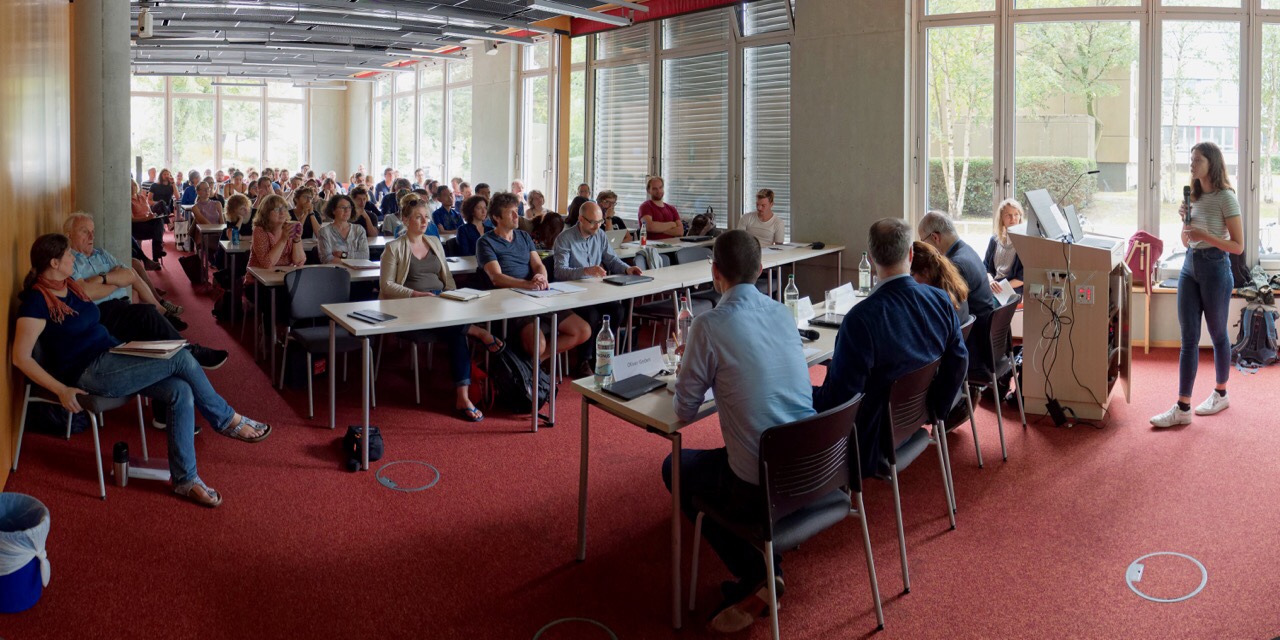
Christopher Schrader opened the discussion saying that he was not quite sure if the 2-degree target was rightly framed. To me it appeared that he could not relate well to the original question. However, later in the discussion he gave some of the most valuable information.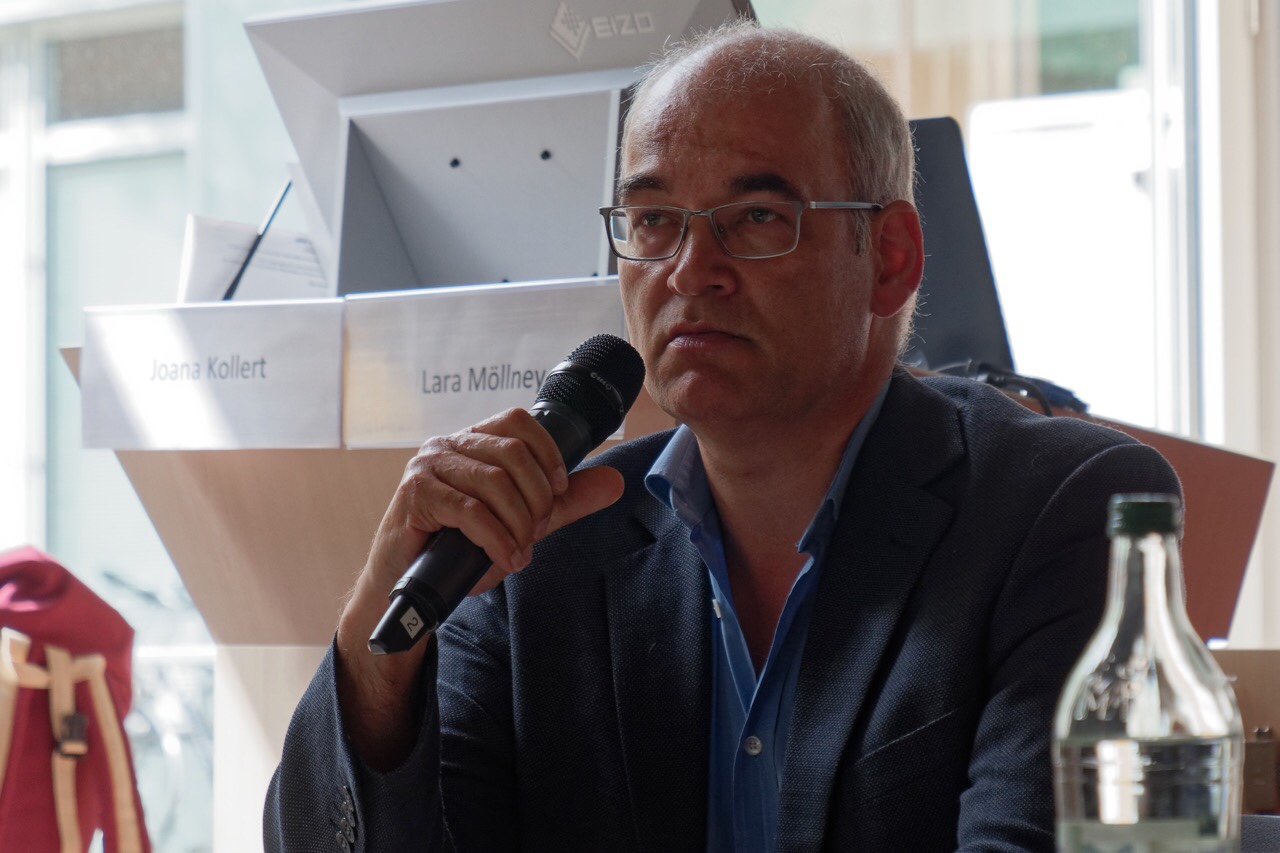
Hermann Held was quite enthusiastic about the 2-degree limit in his opening statement. He argued that it is the only way to rationally define a target from a natural sciences point of view. He went on to say that the common understanding of the 2 degree target changed somewhat over time, considering the uncertainty involved and that the current understanding was that the global mean temperature change would stay below 2 degrees Celsius with a probability of 75%. While this sounded very precise, to my taste most of the uncertainties that we had discussed in the course were not addressed by this definition.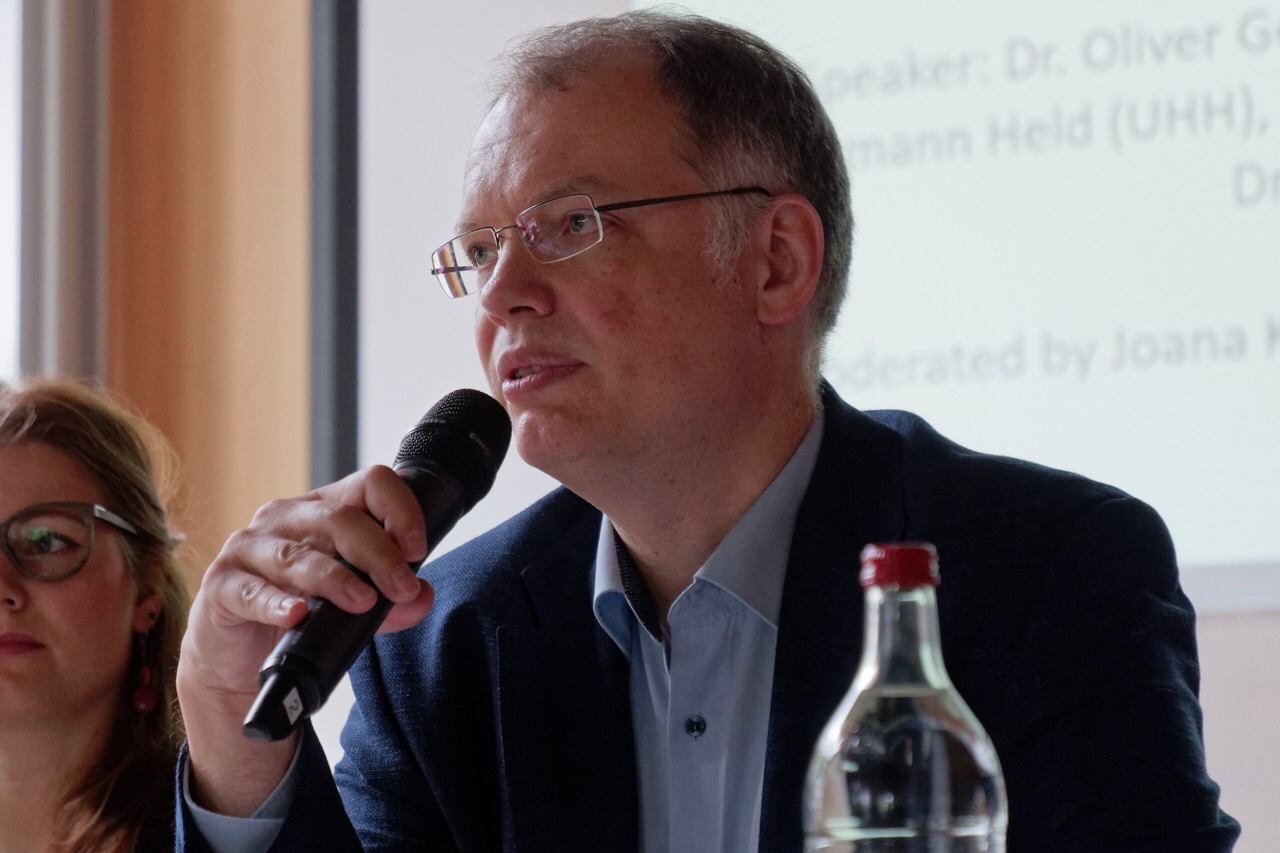
Diana Süsser mentioned the planetary limits – a collection of diverse limits that should not be surpassed for a sustainable livelihood on planet earth. Several of those margins have already been overreached! So, implicitly she told us that such limits are used extensively in the political discussion. She also answered the question of whether uncertainty should be addressed in the argumentation by stating that too much uncertainty can lead to inaction. 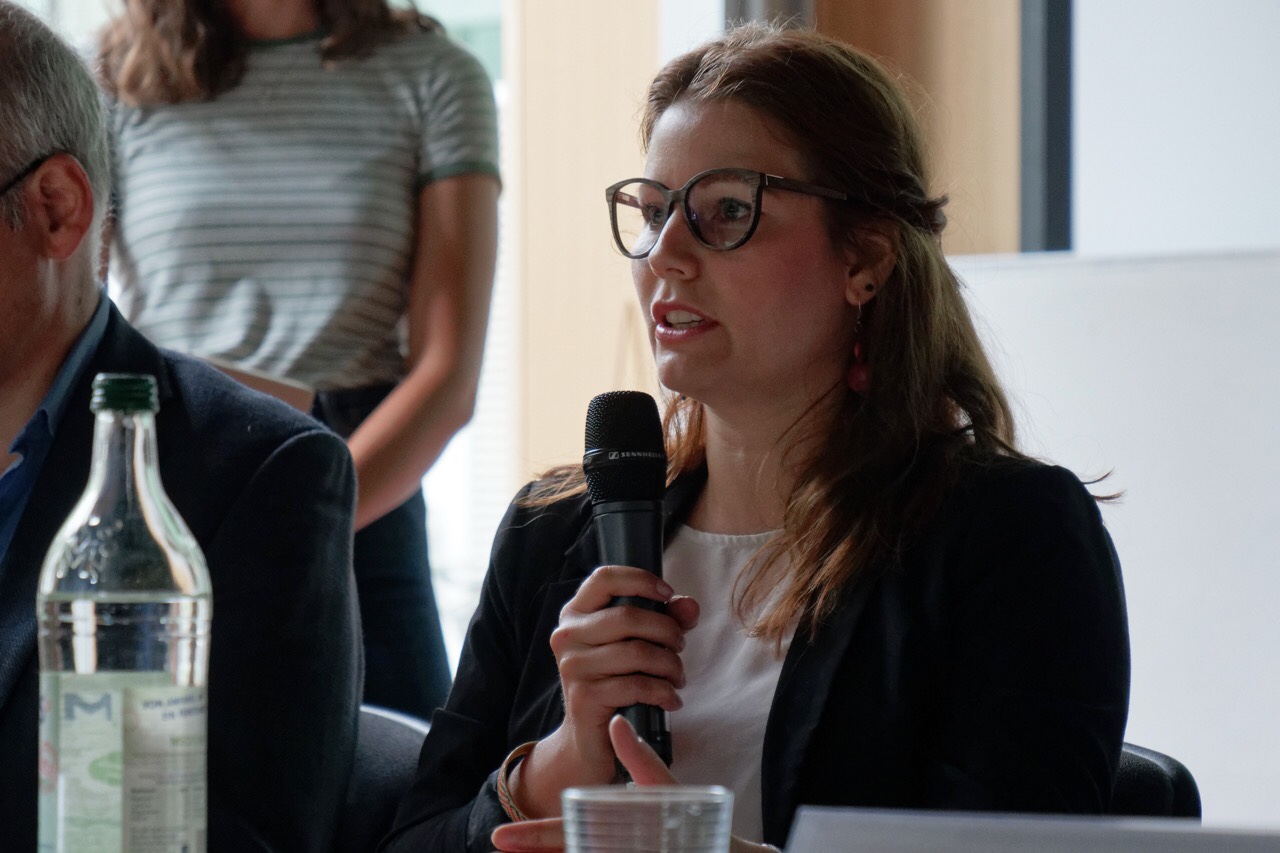
And this was Oliver Geden’s main critique on the 2-degree limit. While he acknowledged that it was well defined scientifically, he argued that the large extent of uncertainties involved leads to political inactivity, since every interest group can claim that they act according to the limit, betting for future solutions, or claiming that the limit is still far from reached. So his proposal was to formulate a net-zero-(CO2)-limit. That means, every activity that emits carbon to the atmosphere needs to be compensated by another activity withdrawing the same amount. Implicitly, this nessecitates geo-engineering measures, which is a highly debated topic and again a field where many actors bet on potential (but highly uncertain) future technologies.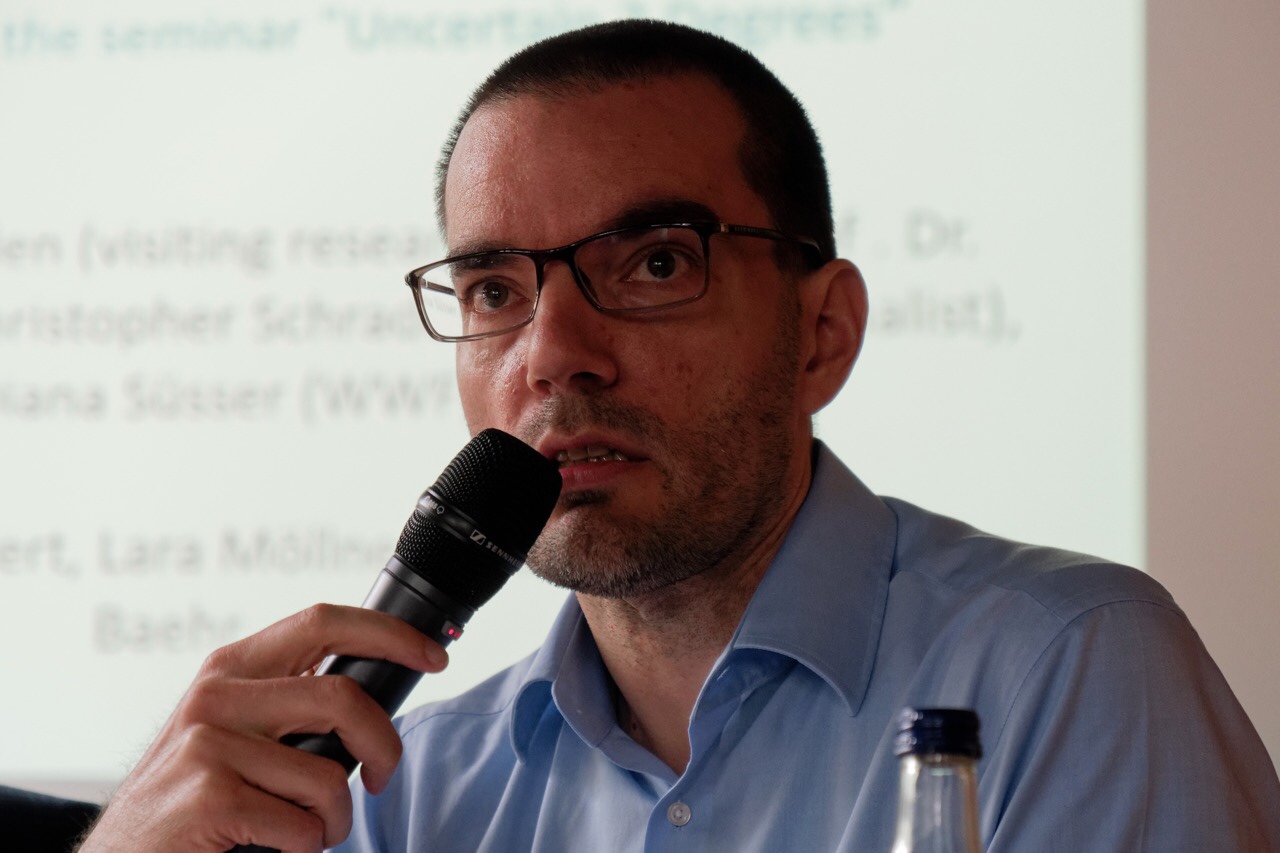
The discussion turned to a topic that was slightly off our main question, nevertheless ist was one of my personal highlights. Christopher Schrader explained the deadlock situation in political action towards a 2-degree limit: While the voters seem to ignore the relevance of the topic, politicians do not feel the urge to act. Since they don’t act, voters are encouraged to think that climate change is not important an issue. And initially voters appear to have little interest in the topic, because of psychological reasons: there is a theory on the limited number of worries as well as what makes us worried. In order to be afraid of an issue, it needs to be personal, immediate, sudden and extreme. None of these attributes holds for climate change – unlike for Islamic terrorism for example, which is a much less affecting and much more uncertain issue indeed. So, we need to act against this vicious cycle.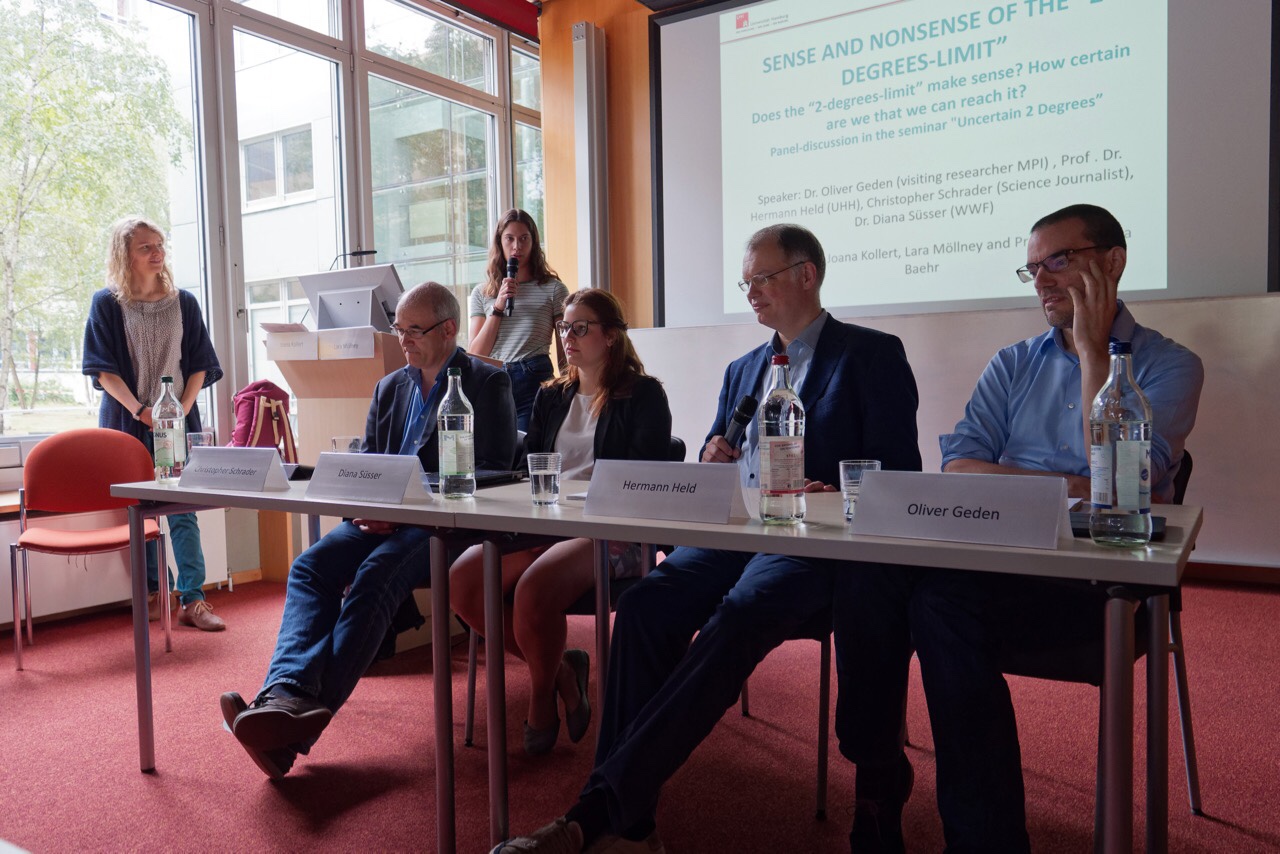
At the end all panelists were asked whether the 2-degree-limit was a useful political tool, in spite of all the caveats. The journalist emphasized that for communication purposes such a clear cut and understandable target is necessary. Also the economist was positive about this target, stating that this was the only way to clearly define a benchmark. The NGO representative was a little more differentiated, saying that it was a useful target, but only in connection with other limits and accompanied by true action. It was good to hear that there are already 400 “willing companies” worldwide collaborating with WWF on developing individual action plans implementing the goals of the Paris Agreement. Only the political scientist was overly negative about the target, calling it completely useless for triggering political action. In fact, so far he is right! But there is a way out, since the Paris Agreement also contains a zero emission target!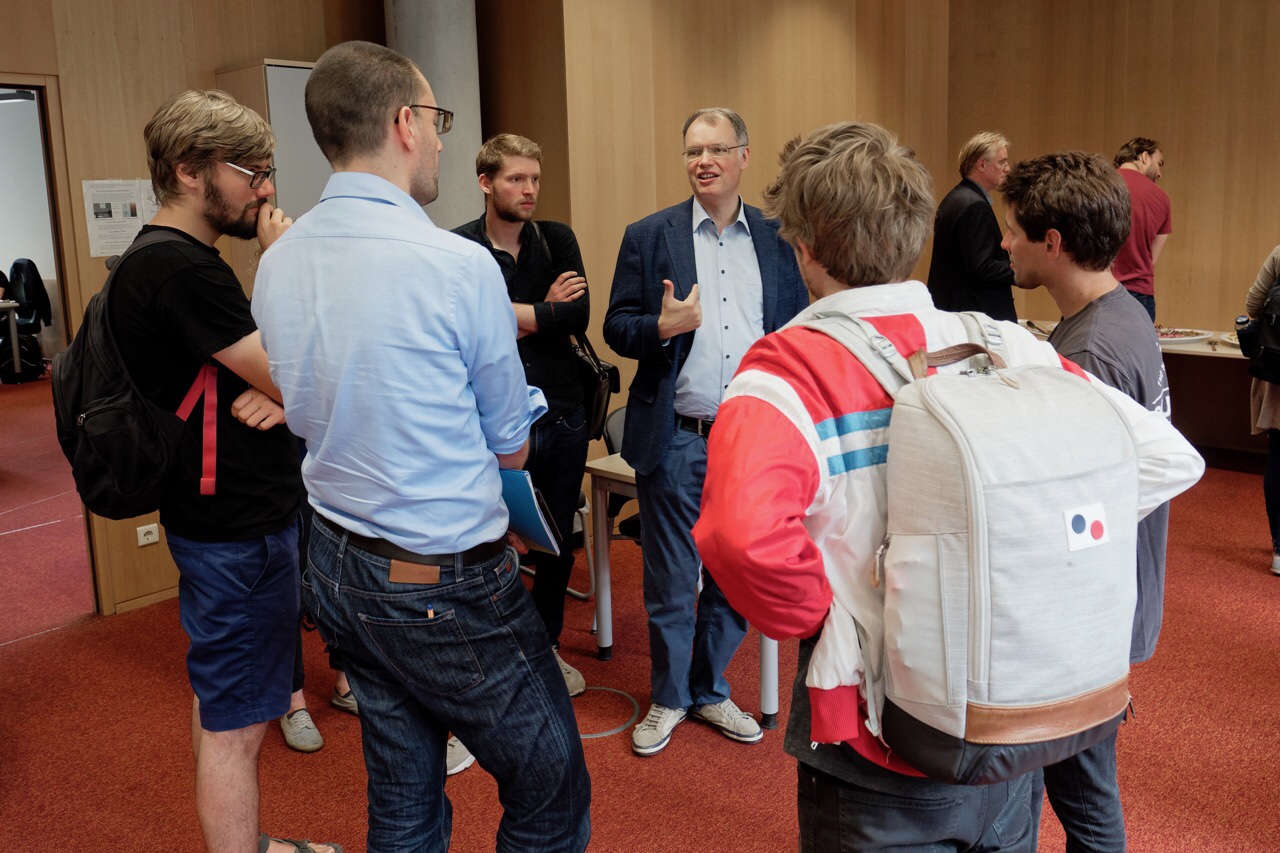
All in all this was a very rich and deep discussion, that could be enhanced with some vegetarian (and even vegan) food. So, the panel discussion and followup informal rounds served the course very well in my opinion. A great thank you to all panelists, participants, moderators and organizers!

